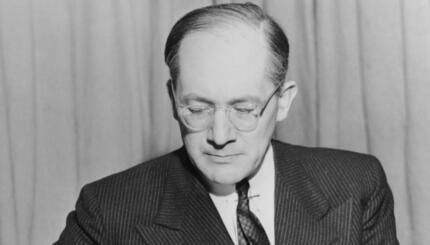The Exodus from Egypt is considered to be the foundational/orienting event for our sacred history. Many commandments are attached to its memory and it can be argued that our experience there is a source for our ethics and morality. “Do not afflict the stranger because you were a stranger in the land of Egypt.” Morality is not only a product of reason, but of historical experience. Included in our tradition as well is a prohibition to return to Egypt. For some the Biblical source is Exodus 14:13, when just as the People came to the Red Sea and were being pursued by the Egyptians “Moses said to the people, Don’t be afraid! Stand firm and see the Lord’s salvation that He will wreak for you today, for the way you have seen the Egyptians is [only] today, [but] you shall no longer continue to see them for eternity.”
There are a number of explanations offered for this prohibition, but it does appear that the Torah is wary of our returning to the place of intense degradation and suffering. Egypt is the place we left from in order to become a People. Does returning there somehow undo and reverse our sacred history? Should you return to a place of oppression and suffering? Can it ever be home?
We know that this prohibition was not followed and a Jewish community flourished in Egypt since the time of the Second Temple. Traditional commentaries wrestle with this seeming violation and offer a number of justifications for Jews living in Egypt. Indeed our source of so much knowledge of our history was unearthed in the past century from the riches of the Cairo Genizah.
This particular case of Egypt comes to mind for me because last week I spent two days in Berlin with rabbis from Chicago. Berlin is a magnificent city and while many buildings are new, many damaged during the War have been restored. As Jews, it is a city central to modern Jewish history. Berlin is also a city of over 130 Holocaust memorials, many of which were constructed as grass roots efforts by the residents of the city and are scattered in many neighborhoods. There is the striking Jewish museum visited by mostly non Jews. But the German Jewish community that thrived there is no more.
This is not however, the end of the story. Berlin is a city with a Jewish community that is slowly being reconstituted with Jews from the former Soviet Union. There are two rabbinical seminaries, one Liberal and one Orthodox. They are training rabbis to serve throughout Germany. Chabad is there as well. Yet one wonders: is this the place Jews should return to after the horrors of the Holocaust? Even as Germany has recognized itself as the perpetrator of the crime, should Jewish civilization reconstitute itself here?
In 1961, Gershom Scholem spoke in Israel at a program celebrating Martin Buber’s translation of the Bible into German, a project begun by him and Franz Rosenzweig in Berlin before the War. Scholem ended his speech with: “For many of us the living sound you tried to evoke in the German language has faded away. Will anyone be found to take it up again?” On my recent trip the German born Masorati rabbi in Berlin, when asked what it meant to live in a city and country that sought to annihilate us answered: Where else can you read Zunz, Buber and Rosenzweig in the original? And finally when asked why go into the rabbinate in Germany, one of the rabbis responded that they were engaged in the ultimate rebuttal of Hitler.
Torah
Pronunced: TORE-uh, Origin: Hebrew, the Five Books of Moses.



